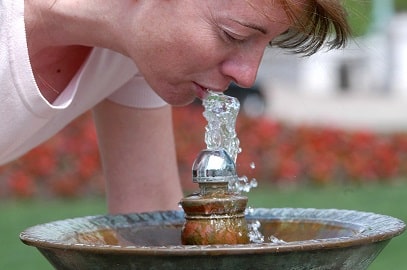 When we think about the fact that the human body is around 60-70% water, it seems strange that even a 2% loss of that vital fluid in our body can affect our health quite adversely, but it can! If you have ever wondered how dehydration affects your energy levels, read on and be prepared to be surprised.
When we think about the fact that the human body is around 60-70% water, it seems strange that even a 2% loss of that vital fluid in our body can affect our health quite adversely, but it can! If you have ever wondered how dehydration affects your energy levels, read on and be prepared to be surprised.
According to Professor Lawrence E. Armstrong, of physiology in UConn’s Department of Kinesiology in the Neag School of Education, “Our thirst sensation doesn’t really appear until we are 1 % or 2 % dehydrated. By then dehydration is already setting in and starting to impact how our mind and body perform.” Professor Armstrong is an international expert on hydration, and has conducted research in the field for more than 20 years. “Dehydration affects all people, and staying properly hydrated is just as important for those who work all day at a computer as it is for marathon runners, who can lose up to 8 % of their body weight as water when they compete.”
In a study undertaken by the University of Connecticut and published inBritish Journal of Nutrition, mild dehydration without hyperthermia in men induced adverse changes in vigilance and working memory, and increased tension/anxiety and fatigue.
[Source PubMed] The results of a separate study showed that the reaction for dehydrated women were less so.
When you are dehydrated, the balance of salts in the body and the blood is out of whack and your muscles are also starved of water. When this happens it causes muscle tiredness, which causes the muscles to work less well. When the muscles have to struggle to work they get tired more easily.
The heart is also a muscle, and when the body is short on electrolytes which it gets from water, the blood thickens, forcing the heart to work harder to pump the blood throughout the body to all your cells and organs. This results in fatigue and can also cause other heart problems.
In order to maintain your energy levels where they ought to be, one needs to drink water regularly to keep the body fully hydrated and keep the blood flowing and distributing energy-fuelling nutrients throughout the body.
If you find that you are struggling to drink water as often as you should because it really does not taste like much, try getting a water cooler. Water coolers filter out the toxins that can be found in tap water, including fluoride which gives it a strange taste. Because the water cooler chills this filtered water it tastes much better; having chilled water being so accessible makes it easy to ensure that you drink sufficient and stay hydrated.
Rent water coolers and purchase water coolers online from Living-Water. Get a free water cooler trial and water needs assessment.
Source:





